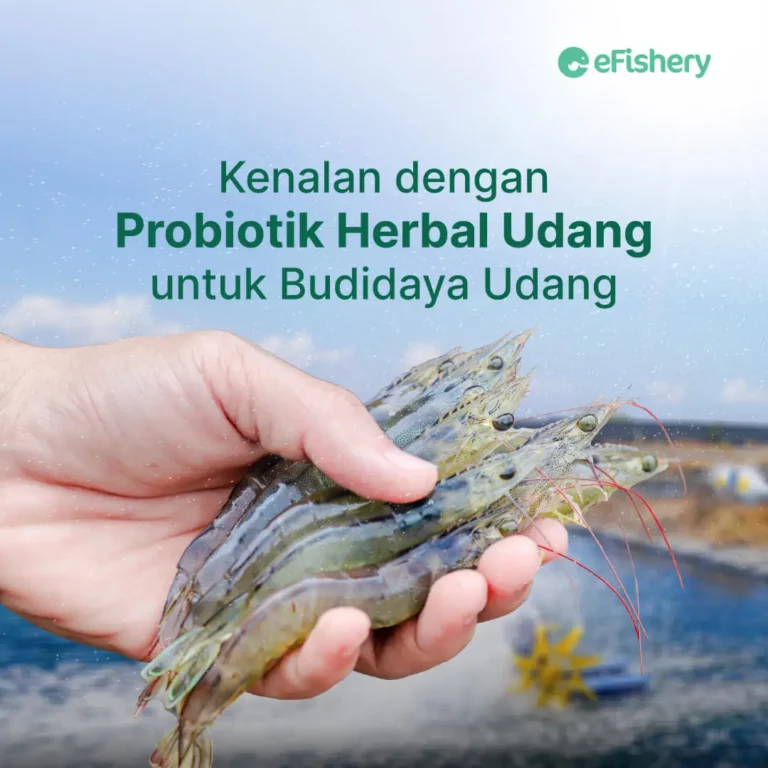Artikel Ini Telah Direview Oleh:

Sangga Sulistyo
Praktisi Aquaculture
Based on the type, probiotics for shrimp are divided into 2, namely herbal probiotics and non-herbal probiotics. Shrimp herbal probiotics are probiotics made with a mixture of herbal ingredients and allegedly can help the growth of shrimp. Meanwhile, non-herbal probiotics are probiotics that do not contain herbal ingredients. Even so, the two types of probiotics are important components in aquaculture, precisely to maintain the health of shrimp. To get to know probiotics and their types further, read this article, come on!
Get to know Probiotics
Probiotics are feed supplements in the form of live microbes that can make efficient use of feed during cultivation. One of the most important benefits of probiotics for shrimp is to stimulate the shrimp's immune system. This is because strains the bacteria contained in probiotics act as immunostimulants to increase the body's immunity in shrimp.
Probiotics can also produce compounds that can inhibit the growth of bad microbes in the shrimp's body. Probiotics with strains Lactic acid bacteria and Bacillus can produce several compounds that can inhibit the growth of bad microbes. One of them is a bacteriocin compound in the form of a protein produced by strains certain.
In shrimp, probiotics are not only useful for stimulating the immune system and inhibiting microbial growth. Probiotics can also stimulate growth and improve shrimp nutrition. In shrimp farming, it is necessary to contain protein and good bacteria as well as several other complements to accelerate the growth of shrimp. You can get the necessary protein and good bacteria from probiotics. Moreover, in several studies it was found that with the presence of probiotics, shrimp growth became more optimal.
Get to know Herbal Probiotics for Shrimp
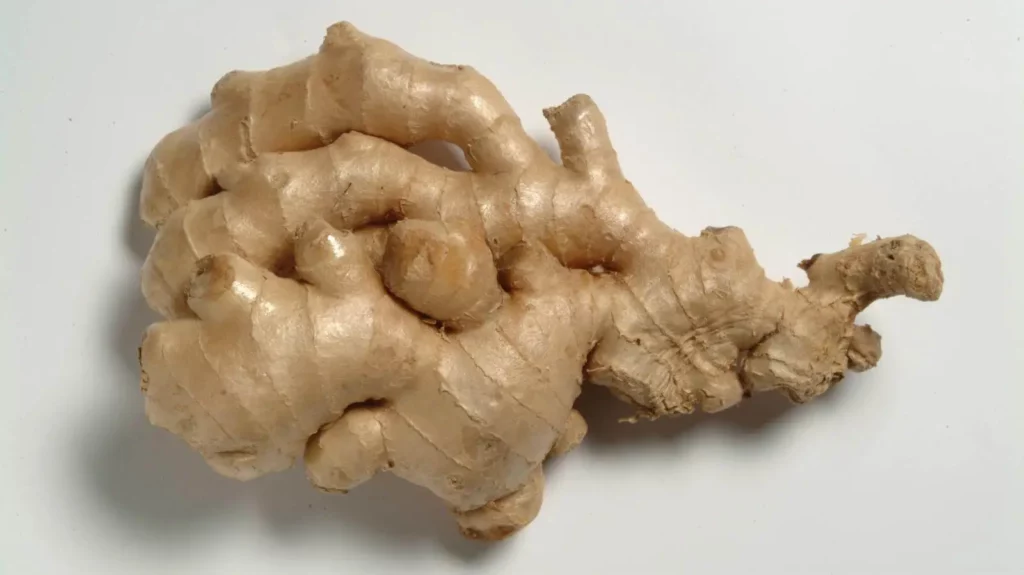
Herbal probiotics are probiotics made with herbal ingredients such as ginger (Zingiber officinale), turmeric (Curcuma domestica), aromatic ginger (Kaempferia galanga), Curcuma (Curcuma xanthorrhiza), and black meeting (Curcuma aeruginosa). Before being processed, herbal ingredients are used to make this probiotic rigorously tested in the laboratory to be a capable probiotic support the success of shrimp farming.
When infected with a disease such as the vibrio bacteria that causes WFD (White Feces Disease), shrimp appetite usually decreases and their growth is stunted. To revive your shrimp appetite, you are advised to use probiotics, especially herbal probiotics. Herbal probiotics are usually in the form of solutions made from selected probiotics and herbal ingredients with a balanced composition. Both types of material are hygienically processed under laboratory supervision to increase shrimp appetite.
The difference between herbal and non-herbal probiotics
If there are herbal probiotics, there are definitely non-herbal probiotics. So, what is the difference between herbal probiotics and non-herbal probiotics? Judging from its name, herbal probiotics are probiotics that contain herbal ingredients, while non-herbal probiotics are probiotics that do not contain herbal ingredients. However, the differences don't end there. Come on, see other differences from herbal and non-herbal probiotics in the following table!
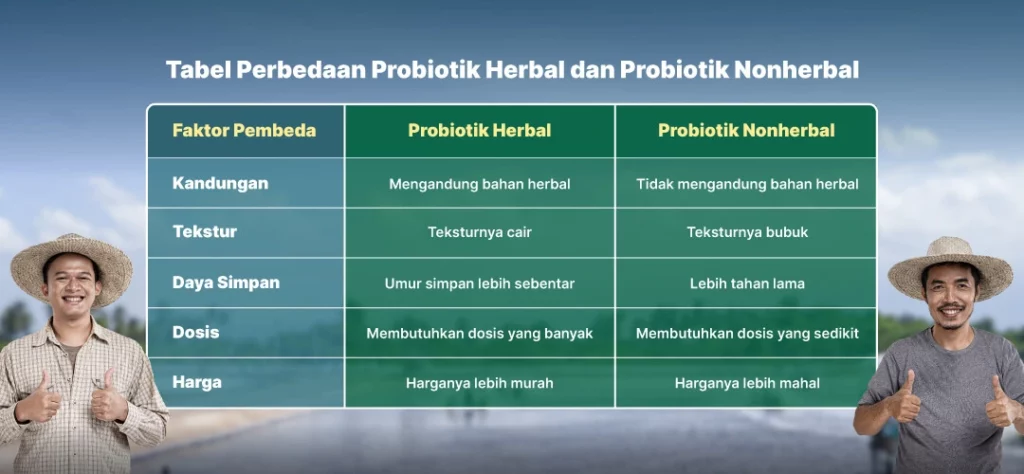
From the difference table above, we can conclude that herbal and non-herbal probiotics have striking differences, especially when viewed from their texture, composition, and price. Although priced at a lower price than non-herbal probiotics, herbal probiotics that contain natural ingredients have a shorter shelf life. Apart from being influenced by the presence of natural ingredients, the shorter shelf life is due to its liquid texture.
Unlike herbal probiotics, powdered non-herbal probiotics can be stored for up to 24 months. So, naturally, if the price is more expensive.
The dosage of herbal probiotics needed in use is also higher than the dose of non-herbal probiotics. So, when viewed in terms of their respective efficiency based on the table above, herbal probiotics and non-herbal probiotics have a balanced efficiency value.
To get to know more about herbal and non-herbal probiotics, let's take a look at the various types on the market!
Herbal Probiotics
1. Minaraya Brevis
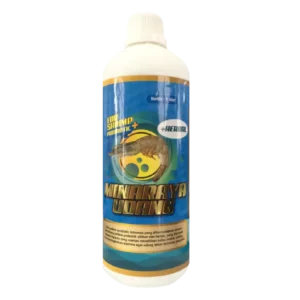
Minaraya Brevis is a solution formulated with selected probiotic compositions and hygienically processed herbal ingredients. In order to last longer, you are required to store Minaraya Brevis in the original packaging in a closed container at room temperature and avoid direct sunlight.
2. Minaraya Shrimp Feed
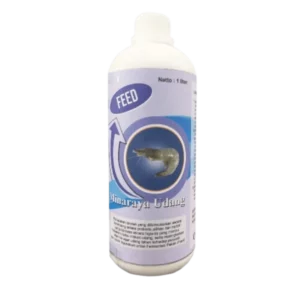
Minaraya Shrimp Feed is a probiotic in the form of a solution formulated in a balanced way between selected probiotics and herbs that are hygienically processed. Minaraya Shrimp Feed is useful for fermenting shrimp feed to increase the breakdown of carbohydrates, fats and proteins with the enzymes they produce. Minaraya Shrimp Feed can also increase shrimp digestibility, shrimp appetite, ADG (Average Daily Gain), and lower FCR (Feed Conversion Ratio) so that the shrimp grow quickly. The herbal ingredients contained in Minaraya Shrimp Feed are Zingiber Officinale aka ginger.
3. Zipro Nutri Feed
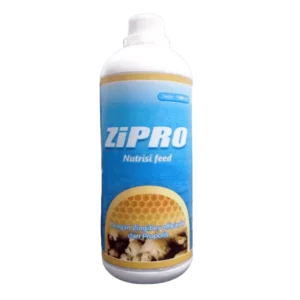
Zipro Nutri Feed is a natural ingredient supplement to increase body resistance and disease control. The combination of natural ingredients and propolis is considered capable of improving the nutritional quality of the feed, thus helping to boost the shrimp's immune system. Zipro Nutri Feed is also used to promote growth by preventing and controlling disease and pathogen attack. The herbal ingredients contained in Zipro Nutri Feed are ginger extract (Zingiber officinale), ginger extract (Curcuma xanthorrhiza), and propolis.
Non-herbal Probiotics
1.Protoxin
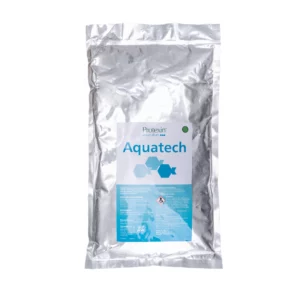
Aquatec Protexin is a probiotic based Bacillus subtilis – PXN21 which is used in shrimp and tilapia feeds to improve growth performance as well as survival rates. In addition, Protexin is also used to reduce shrimp mortality because this product can suppress the virulence of disease-causing bacteria and viruses.
2. Powerlac
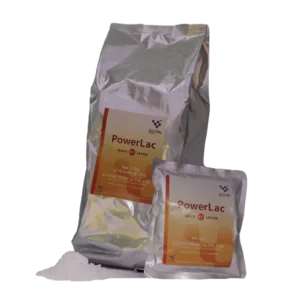
Powerlac is feed additives formulated as an immunostimulant for fish and shrimp. Powerlac contains bacteria Lactococcus lactis which is isolated from the intestines of shrimp to maximize growth and improve the health of fish and shrimp.
3. Takeshu Biolacto
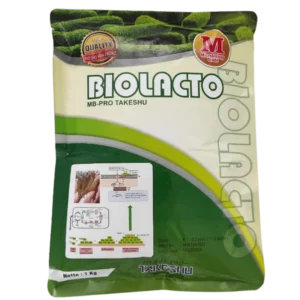
Biolacto probiotics are probiotics that play a role in digestive function, immune system, and pond bottom health in shrimp farming activities. You can use this probiotic to increase the population of Lactobacillus bacteria, prevent disease from sticking in the digestion of shrimp, and help improve the digestive process of shrimp.
Which is Better, Herbal Probiotics or Non-Herbal Probiotics?
After knowing the advantages, disadvantages, and several types of herbal and non-herbal probiotics, it's time for you to choose between the two. To choose the type of probiotic, the first thing you have to do is adjust the price according to the funds you have. As noted above, non-herbal probiotics are more expensive than herbal probiotics. Even though they are more expensive, you only need a small dose of non-herbal probiotics to work effectively. This makes the non-herbal probiotics that you bought not run out quickly.
Apart from adjusting it to the existing funds, you can also adjust the selection of probiotics according to the needs of the shrimp. Mr / Ms can use Minaraya Shrimp Feed (herbal probiotics) if the shrimp need fermented feed using probiotics. Purpose of feed fermentation using Minaraya Shrimp Feed is for increase the breakdown of carbohydrates, fats, and proteins with the enzymes they produce. However, if you want probiotics that are formulated as immunostimulants, you can use them Powerlac (Nonherbal Probiotics). So, to choose the best probiotic, adjust it to your individual needs!
Konsultasikan Penggunaan Probiotik Udang dengan Ahli Budidaya!
Need Help Regarding Shrimp Cultivation Business?
Fill in your personal data in the following form. Our team will immediately contact you via the number cellphone attached. Make sure the data entered is correct.
Probiotik, baik yang herbal maupun yang nonherbal, memang sangat diperlukan untuk menunjang tumbuh kembang udang. Terlebih, bagi udang yang rentan terserang penyakit atau terjangkit virus dan bakteri. Untuk itu, Bapak/Ibu disarankan untuk mempunyai probiotik yang sesuai dengan keinginan dan kebutuhan budidaya masing-masing.
Untuk mendapatkan probiotik yang sesuai dengan kebutuhan Bapak/Ibu, Bapak/Ibu bisa berkonsultasi dengan Ahli Budidaya melalui fitur Cultivation Consultation from eFarm. There are many professional aquaculture experts and shrimp farmers who are ready to discuss with you in person online, sehingga Bapak/Ibu memiliki kesempatan untuk mendapatkan pendampingan FREE dalam mengelola budidaya udang.
Isi formulir di atas untuk konsultasi FREE in Cultivation Consultation!

Sangga Sulistyo - Praktisi Aquaculture
Sangga adalah praktisi Aquaculture yang memulai karirnya pada tahun 2003 dan sekarang menjadi Technical Support Manager eFishery untuk seluruh wilayah Indonesia
Questions About Herbal Shrimp Probiotics
Herbal probiotics are probiotics that are usually liquid in texture made with a mixture of herbal ingredients and are sold at a lower price than non-herbal probiotics. Meanwhile, non-herbal probiotics are powder-textured probiotics without a mixture of herbal ingredients which have a shelf life of up to 24 months.
Not really, each of the herbal and non-herbal probiotics has its own advantages and disadvantages. The use of herbal and non-herbal probiotics can be adjusted according to the needs of the shrimp because each probiotic has a different function.
- https://agribiznetwork.com/probiotik-herbal-untuk-sukses-budidaya-udang/
- https://delosaqua.com/id/probiotik-udang-vaname/
- https://surabaya.tribunnews.com/2019/09/18/probiotik-berbasis-herbal-percepat-masa-panen-udang-vaname
